The Rise of Exponentially Improving Technologies
Technological Advancements Driving Change
The Rise of Exponentially Improving Technologies
Introduction
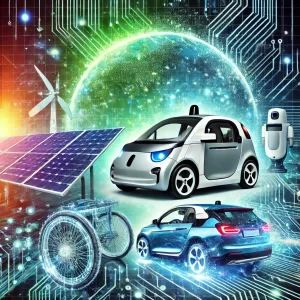 As we journey further into the era of clean disruption, it becomes clear that the driving force behind this seismic shift is a set of rapidly advancing technologies. These technologies, which include solar energy, electric vehicles (EVs), and autonomous cars, are not just improving incrementally—they are advancing exponentially, bringing about changes at a pace and scale that are hard to comprehend. In this blog, we will explore these groundbreaking technologies, draw comparisons to past technological disruptions, and examine the opportunities and challenges they present. By understanding the rise of these technologies, you can position yourself to capitalize on the changes they bring, ensuring you stay ahead of the curve.
As we journey further into the era of clean disruption, it becomes clear that the driving force behind this seismic shift is a set of rapidly advancing technologies. These technologies, which include solar energy, electric vehicles (EVs), and autonomous cars, are not just improving incrementally—they are advancing exponentially, bringing about changes at a pace and scale that are hard to comprehend. In this blog, we will explore these groundbreaking technologies, draw comparisons to past technological disruptions, and examine the opportunities and challenges they present. By understanding the rise of these technologies, you can position yourself to capitalize on the changes they bring, ensuring you stay ahead of the curve.
Solar Energy: Powering the Future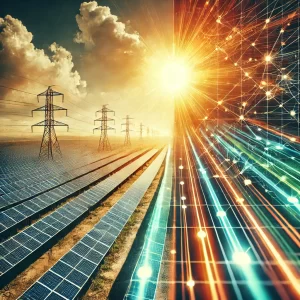
One of the most significant drivers of clean disruption is the rise of solar energy. Once considered an expensive and niche technology, solar power has rapidly become the most cost-effective and scalable source of energy available. The key to this transformation lies in the exponential decrease in the cost of solar panels, which according to the National Renewable Energy Laboratory, (NREL), has plummeted by over 99% since 1976, with the average cost of electricity from solar PV projects dropping by 85% in just the last decade, coupled with advancements in energy storage technology.
Solar energy is fundamentally different from traditional energy sources. Unlike fossil fuels, which require extensive infrastructure for extraction, transportation, and combustion, solar energy is decentralized. It can be generated and consumed at the point of use, whether that’s a home, a business, or even a vehicle. This decentralization democratizes energy production, allowing individuals and communities to become energy-independent.
The implications of this shift are profound. As solar energy becomes more widespread, the traditional utility model—centralized power generation and distribution—will be increasingly challenged. This creates new opportunities for entrepreneurs and businesses that can offer innovative solutions, from solar panel installation to energy management systems.
Electric Vehicles: The Future of Transportation
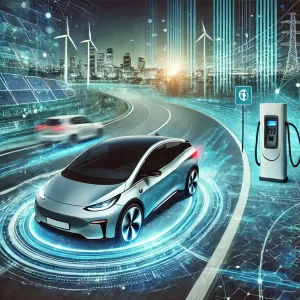 Electric vehicles (EVs) are another key technology driving the clean disruption. Like solar energy, EVs have undergone a rapid evolution, moving from niche products to mainstream adoption in a remarkably short period. This shift is driven by a combination of factors, including the falling cost of batteries, improvements in charging infrastructure, and growing consumer demand for cleaner, more efficient transportation.
Electric vehicles (EVs) are another key technology driving the clean disruption. Like solar energy, EVs have undergone a rapid evolution, moving from niche products to mainstream adoption in a remarkably short period. This shift is driven by a combination of factors, including the falling cost of batteries, improvements in charging infrastructure, and growing consumer demand for cleaner, more efficient transportation.
EVs offer numerous advantages over traditional internal combustion engine (ICE) vehicles. They are cheaper to operate, with lower fuel and maintenance costs, and they produce zero emissions at the point of use. Additionally, EVs are becoming increasingly connected and autonomous, offering a glimpse into a future where vehicles are not just modes of transport, but integrated components of a smart, connected ecosystem.
The rise of EVs is poised to disrupt the automotive industry in ways that are both predictable and unforeseen. Traditional automakers are being forced to pivot their strategies, investing heavily in electric models and rethinking their entire supply chains. Meanwhile, new players—many of them tech companies—are entering the market, bringing with them a different perspective on what a vehicle should be. For entrepreneurs, the EV revolution presents opportunities in everything from charging infrastructure to software development.
Autonomous Vehicles: Redefining Mobility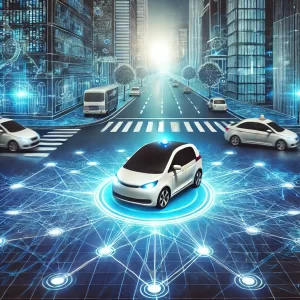
Autonomous vehicles, or self-driving cars, represent the next frontier in transportation technology. While still in the early stages of development, the potential impact of autonomous vehicles cannot be overstated. These vehicles have the capability to fundamentally change how we think about mobility, shifting the focus from vehicle ownership to transportation as a service.
The development of autonomous vehicles is driven by advances in artificial intelligence, machine learning, and sensor technology. These technologies enable vehicles to perceive their environment, make decisions, and navigate roads with little to no human intervention. As these systems improve, the vision of a world where cars drive themselves—safely and efficiently—becomes increasingly attainable.
The implications of autonomous vehicles extend far beyond the automotive industry. The widespread adoption of self-driving cars could reduce traffic accidents, decrease the need for parking spaces, and even change the design of cities. However, it also raises significant challenges, particularly in terms of job displacement for drivers and the ethical considerations of machine decision-making.
For businesses and entrepreneurs, the rise of autonomous vehicles presents both challenges and opportunities. The traditional auto industry is being disrupted, but new markets are emerging in areas like autonomous vehicle software, ride-sharing services, and smart city infrastructure.
Comparing to Past Technological Disruptions
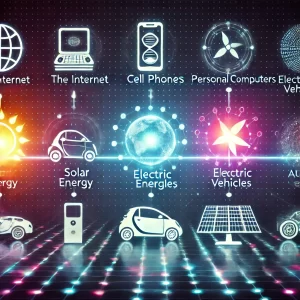 To understand the potential impact of these technologies, it’s useful to compare them to past technological disruptions. Consider the advent of the Internet, cell phones, and personal computers. Each of these technologies started as niche products, often dismissed by industry incumbents. However, as they improved exponentially, they quickly became ubiquitous, transforming entire industries and creating new ones in their wake.
To understand the potential impact of these technologies, it’s useful to compare them to past technological disruptions. Consider the advent of the Internet, cell phones, and personal computers. Each of these technologies started as niche products, often dismissed by industry incumbents. However, as they improved exponentially, they quickly became ubiquitous, transforming entire industries and creating new ones in their wake.
The Internet disrupted traditional media, retail, and communication industries, while cell phones and personal computers revolutionized the way we work, socialize, and consume information. Similarly, solar energy, electric vehicles, and autonomous cars have the potential to upend existing industries and create entirely new markets.
However, the speed and scale of these disruptions are even greater today, thanks to the interconnectedness of global markets and the rapid pace of technological innovation. This means that the window of opportunity to adapt and thrive in this new landscape is narrower than ever. Those who recognize the potential of these technologies and act quickly will be best positioned to succeed.
Opportunities and Challenges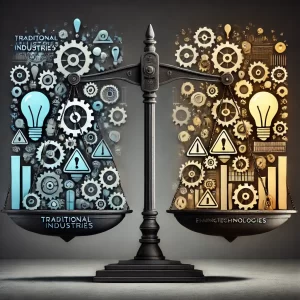
The rise of exponentially improving technologies presents both opportunities and challenges. On the one hand, these technologies offer the potential for massive efficiency gains, cost reductions, and new business models. On the other hand, they also pose significant risks for those who are slow to adapt.
For entrepreneurs and businesses, the key is to stay informed and be proactive. By understanding the trajectory of these technologies, you can identify the areas where they will have the greatest impact and position yourself to take advantage of the opportunities they create. Whether it’s investing in solar energy, developing EV-related products, or exploring the possibilities of autonomous vehicles, the potential for growth is immense.
However, it’s also important to recognize the challenges. The disruption of traditional industries will inevitably lead to job losses and economic displacement. This makes it essential for businesses and individuals to be agile and willing to embrace change. Those who can navigate these challenges and leverage new technologies will be the ones who thrive in the coming era.
Call to Action: Prepare for the Future with Our Course
 As these technologies continue to evolve, the opportunities they present will only grow. But to capitalize on them, you need the right knowledge and skills. That’s where our course, Mastering the Art of Wealth Creation: A Journey Through Mind Power and Marketing, comes in. This course is designed to equip you with the tools and insights you need to leverage these technologies in your own business, ensuring you stay ahead of the curve.
As these technologies continue to evolve, the opportunities they present will only grow. But to capitalize on them, you need the right knowledge and skills. That’s where our course, Mastering the Art of Wealth Creation: A Journey Through Mind Power and Marketing, comes in. This course is designed to equip you with the tools and insights you need to leverage these technologies in your own business, ensuring you stay ahead of the curve.
Don’t wait for the future to catch up with you—take control of your destiny today. Enroll in our course and start mastering the art of wealth creation in the age of clean disruption.
Social Media Hashtags : #CleanDisruption, #ExponentiallyImproving, #SolarEnergy, #ElectricVehicles, #AutonomousCars, #FutureOfTransportation, #RenewableEnergy, #TechnologicalDisruption, #WealthCreation, #MasterYourFuture

John Rogers is a former Wall Street portfolio manager and served as CEO of Premium Enterprises and President of The Colorado Tire Recycling Center. He transitioned to digital marketing, founding WealthCreationMastermind.com to empower home-based entrepreneurs with cutting-edge strategies. Creator of the “Mastering the Art of Wealth Creation” online course, John has driven significant growth in network marketing, achieving the Blue Diamond rank and earning the title of Univera Associate of the Year in 2015. His expertise in leveraging technology for financial success transforms how entrepreneurs achieve their business goals.